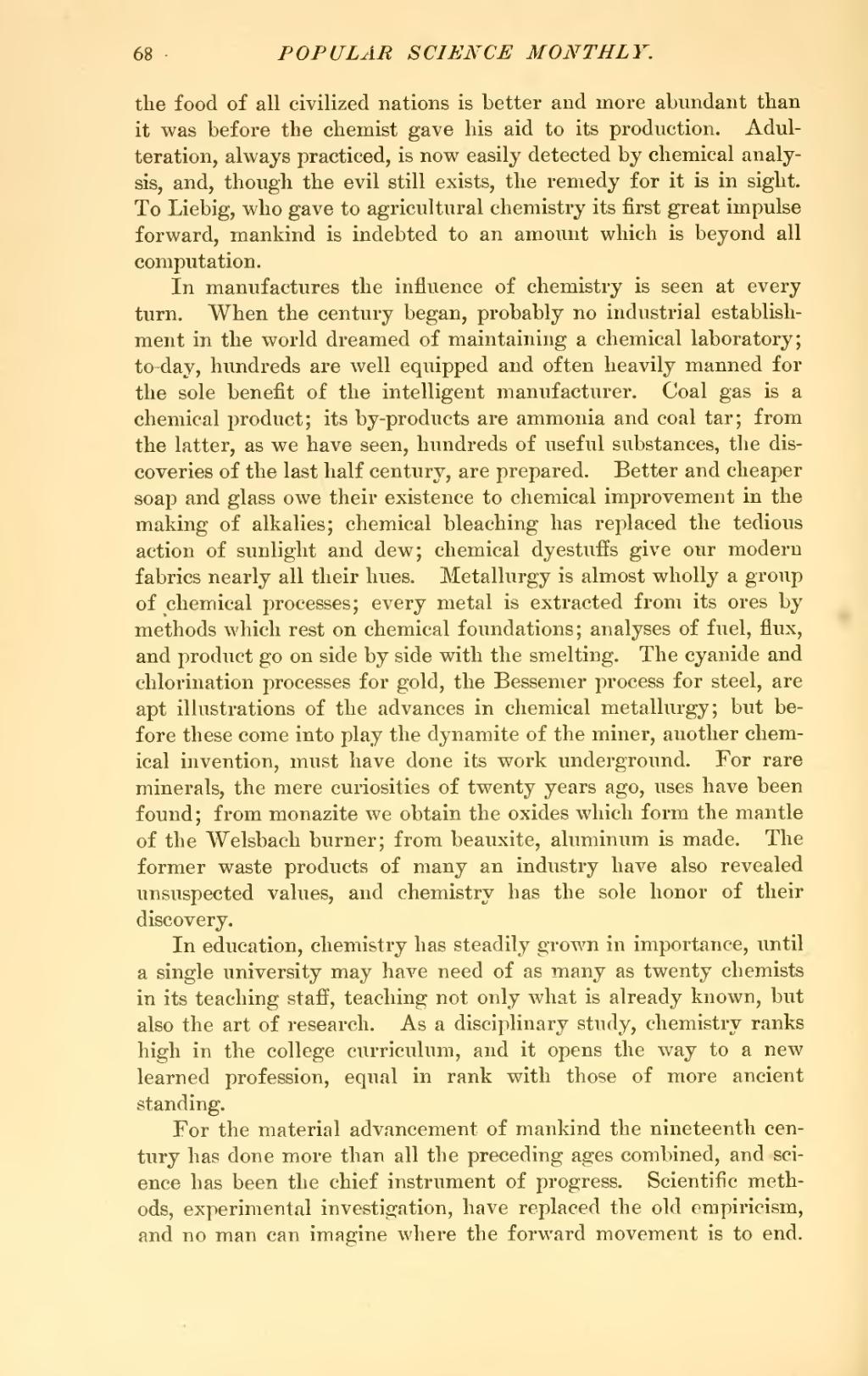the food of all civilized nations is better and more abundant than it was before the chemist gave his aid to its production. Adulteration, always practiced, is now easily detected by chemical analysis, and, though the evil still exists, the remedy for it is in sight. To Liebig, who gave to agricultural chemistry its first great impulse forward, mankind is indebted to an amount which is beyond all computation.
In manufactures the influence of chemistry is seen at every turn. When the century began, probably no industrial establishment in the world dreamed of maintaining a chemical laboratory; to-day, hundreds are well equipped and often heavily manned for the sole benefit of the intelligent manufacturer. Coal gas is a chemical product; its by-products are ammonia and coal tar; from the latter, as we have seen, hundreds of useful substances, the discoveries of the last half century, are prepared. Better and cheaper soap and glass owe their existence to chemical improvement in the making of alkalies; chemical bleaching has replaced the tedious action of sunlight and dew; chemical dyestuffs give our modern fabrics nearly all their hues. Metallurgy is almost wholly a group of chemical processes; every metal is extracted from its ores by methods which rest on chemical foundations; analyses of fuel, flux, and product go on side by side with the smelting. The cyanide and chlorination processes for gold, the Bessemer process for steel, are apt illustrations of the advances in chemical metallurgy; but before these come into play the dynamite of the miner, another chemical invention, must have done its work underground. For rare minerals, the mere curiosities of twenty years ago, uses have been found; from monazite we obtain the oxides which form the mantle of the Welsbach burner; from beauxite, aluminum is made. The former waste products of many an industry have also revealed unsuspected values, and chemistry has the sole honor of their discovery.
In education, chemistry has steadily grown in importance, until a single university may have need of as many as twenty chemists in its teaching staff, teaching not only what is already known, but also the art of research. As a disciplinary study, chemistry ranks high in the college curriculum, and it opens the way to a new learned profession, equal in rank with those of more ancient standing.
For the material advancement of mankind the nineteenth century has done more than all the preceding ages combined, and science has been the chief instrument of progress. Scientific methods, experimental investigation, have replaced the old empiricism, and no man can imagine where the forward movement is to end.

